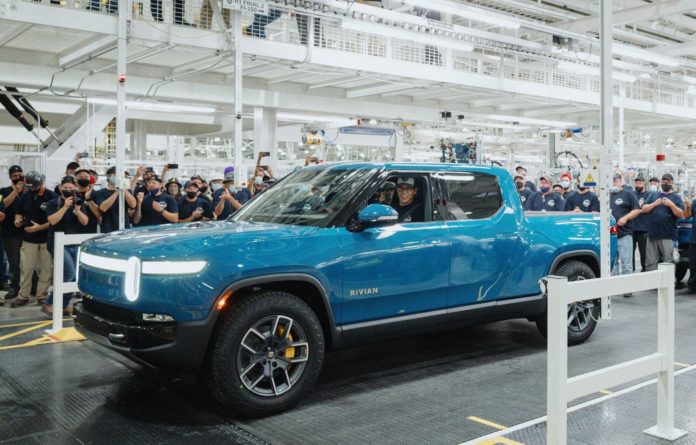Rivian just filed the necessary paperwork with the Securities and Exchange Commission to issue $1.3 billion in convertible bonds to raise enough capital to see the company through its current financial challenges in the high-end EV market.
The action cost the company a 7% stock drop in after-hours trading Monday evening, which has carried over into Tuesday where the stock is down 13.2% now.
The company is billing the issue as “green bonds” under the principles of the International Capital Market Association. According to the ICMA, “Green bonds enable capital-raising and investment for new and existing projects with environmental benefits. The Green Bond Principles (GBP) seek to support issuers in financing environmentally sound and sustainable projects that foster a net-zero emissions economy and protect the environment.”
In general, green bonds are subject to the same evaluations of risk and credit rating of the issuing entity in the same way as any other bond, but Rivian’s hope is that investors will take a lower interest rate in exchange for the public relations benefit of investing in green technology.
The advantage of green bonds to investors is strictly in the public presentation of the issue as raising money for a worthy environmental benefit. Theoretically, government entities could choose to grant green bonds preferential tax status, but that has not been mentioned in connection with the Rivian issue.
Senior and convertible debt

According to Rivian’s press release, the company plans to sell up to $1.3 billion in bonds that would be due and payable not later than March 15, 2029. However, the company could redeem the bonds earlier under certain circumstances.
The bonds are being offered to qualified institutional buyers, which generally means bond funds and other entities managing at least $100 billion in securities. Individuals will not be eligible to buy these bonds.
According to Rivian, the bonds will be “senior,” meaning that the bondholders will have the first claim to cash flows of the company in the event of bankruptcy. However, the bonds are also unsecured, which is to say they are not backed by Rivian’s assets, instead they are essentially simply a promise to repay. Finally, the bonds are convertible under some circumstances bondholders will be able to convert the debt owed in the bonds to equity in the form of Rivian common stock. The company may also pay off the bond in cash or a combination of cash and stock, at its discretion.
Institutional investors who purchase bonds at the initial offering will have the option of securing up to $200 million in additional bonds within two weeks of the issue. This is key because the interest rate of the bonds may not be known until the initial issue is completed.

Plans for the money
Rivian has been burning through its cash, and it needs this new money to stay afloat until it can bring out its more affordable “R2” line of vehicles, currently scheduled for 2026.
“We expect the R2 platform will unlock a global market opportunity for Rivian and are excited about the early development work that is underway,” the company stated in the fall of 2022.
According to the company’s public statement about the new bond issue, “Rivian intends to use the net proceeds from the offering to finance … current and/or future eligible green projects.”
Eligible green bond projects generally involve clean transportation, renewable energy, circular economy, energy efficiency and pollution prevention and control. Arguably, a new line of affordable EVs contributes to all of those values, especially from Rivian’s point of view.

